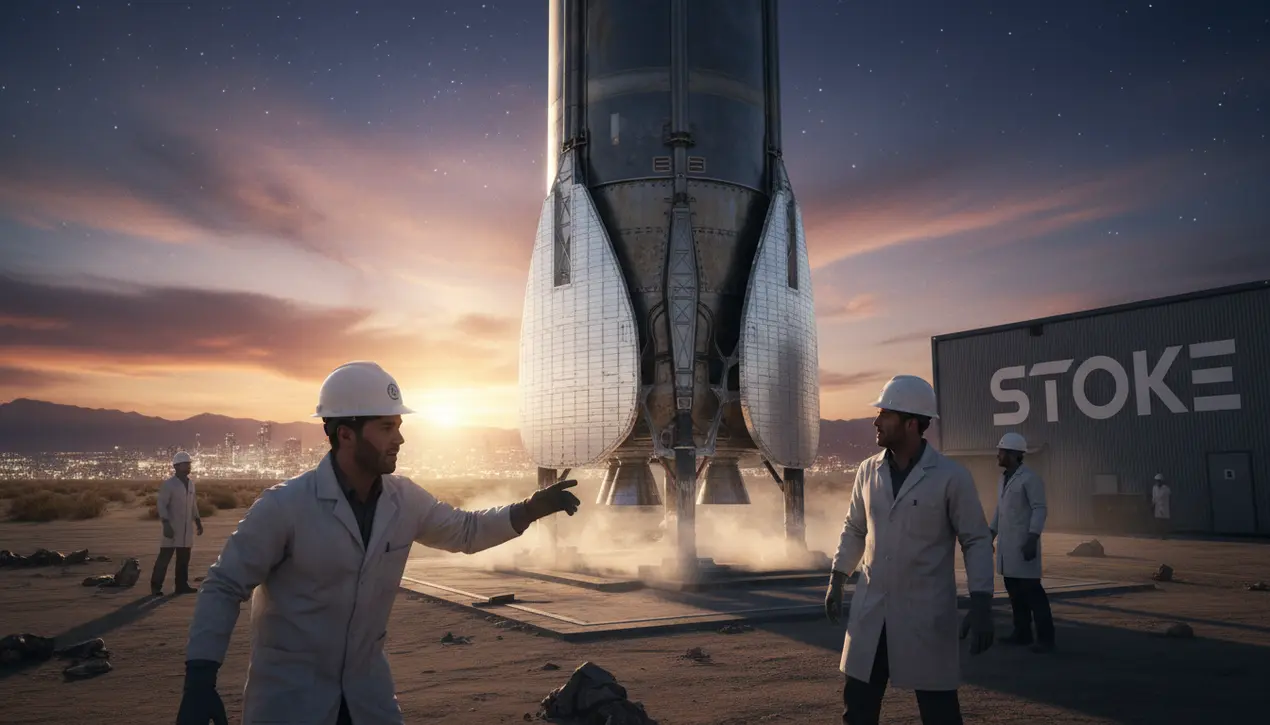
Sciencespace & astronomyRocket Launches
Stoke Space goes for broke to solve key launch problem.
TH
Thomas Green
1 day ago7 min read7 comments
In the grand, cosmic arena of space exploration, where every launch is a high-stakes play against gravity's relentless defense, the emergence of another rocket company might seem like sending a rookie onto the field during the championship's final seconds. Yet, Stoke Space isn't just another name on the roster; they are attempting a maneuver so audacious it could fundamentally rewrite the playbook for orbital access.The core problem they're tackling is one of the industry's most stubborn challenges: full and rapid reusability. While players like SpaceX have mastered the art of returning first-stage boosters—the opening act of the launch symphony—the second stage, the vehicle that actually achieves orbit, has historically been a sacrificial lamb, burning up in the atmosphere or plunging into the ocean after a single use.This is the equivalent of building a brand-new, precision-engineered race car for every single lap; it's spectacularly expensive and inherently limiting. Stoke's 'go for broke' strategy centers on developing a fully reusable second stage, a feat that would be the holy grail of affordable spaceflight.Their proposed vehicle features a novel, metallic heat shield and a unique engine configuration designed to survive the searing heat of re-entry, navigate back through the atmosphere, and execute a controlled, powered landing—much like the first stages we've grown accustomed to seeing descend gracefully to landing pads. The engineering hurdles are immense, involving materials science that can withstand the violence of a hypersonic return and propulsion systems capable of exquisite control in the vacuum of space and the thick lower atmosphere.Historically, many companies have been incinerated by the technical and financial inferno of such ambitions. However, the potential payoff is a universe of possibility.Success would dramatically slash the cost of placing satellites, scientific instruments, and eventually people into orbit, accelerating everything from global internet constellations to deep-space missions. It would transform access to space from a carefully orchestrated, multimillion-dollar event into something more routine and operational, akin to the difference between the early transatlantic flights and modern air travel.The question isn't whether the world needs a 151st rocket company, but whether it needs a company brave enough to bet everything on solving this final, critical piece of the reusability puzzle. In the relentless pursuit of making humanity a multi-planetary species, such high-risk, high-reward ventures are not just welcome; they are essential. Stoke Space is not merely building a rocket; they are attempting a paradigm shift, and the entire aerospace industry is watching, breathlessly, to see if their gamble will lift them to the stars or see them crash back to Earth.
#SpaceX
#private spaceflight
#rocket reusability
#Stoke Space
#featured
#launch industry
#innovation
Stay Informed. Act Smarter.
Get weekly highlights, major headlines, and expert insights — then put your knowledge to work in our live prediction markets.
Related News
Comments
Loading comments...
© 2025 Outpoll Service LTD. All rights reserved.